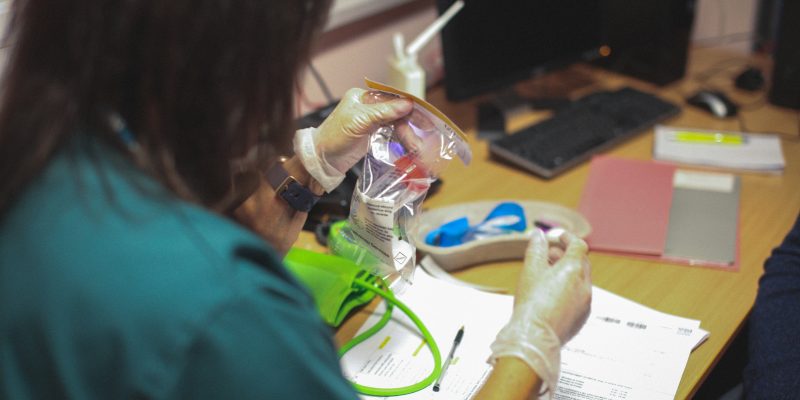People stuck in homelessness die on average some 30 years younger than the general population. Pathway was founded in 2009 at University College Hospital in London in recognition of the mounting evidence that profound social exclusion, particularly homelessness, has devastating consequences for human health.
At this time, many people working in the health service seemed to view homelessness or multiple exclusion as largely the responsibility of housing or social services, or perhaps even blame individual patients for their illnesses. Due to the impact of exclusion on health, we’ve shown health services have a huge part to play in responding to homelessness and multiple exclusion. This is why we refer to it as ‘inclusion health’.
We strongly believe in both health equity and health justice. We use the evidence we generate – from frontline health service staff, our many research and project partners, and from the lived experience of patients – to look upstream and campaign for a fairer, more just society and wider systemic change. In other words, a society that acts before social and economic disadvantage multiplies into exclusion and collapsing health.
We don’t provide healthcare directly, rather we work alongside partners at every level of the health service to:
- develop, test and share evidence-based models of care across the NHS, like our Pathway hospital teams;
- support specialist inclusion health professionals, by developing and hosting standards, training and good practice resources;
- influence public policy, commissioning and drive wider system change;
- change attitudes and challenge the stigma people experiencing multiple exclusion face too often when they seek help.
Back in 2009 we created the first specialist homeless team-in-a-hospital in the UK – a Pathway Team. In 2019, with funding from the Health Foundation, we consolidated ten years of learning from our first ten teams into a formalised, structured partnership offer. NHS organisations interested in improving outcomes for homeless patients now subscribe to our Partnership Programme, and in turn we help them assess local need, design a service response, facilitate training and recruit new people into our national clinical network.
Since we first started, we’ve expanded our offer to host and support a wide range of homeless and inclusion health research and service development projects. This includes end-of-life care, oral health, mental health and mental capacity, specialist intermediate care, and lived-experience employment.
In 2011 we launched the Faculty for Homeless and Inclusion Health, an open national network for frontline inclusion health clinicians, researchers and campaigners. The Faculty led the development of formal standards and a range of work to establish inclusion health as a discipline within medicine and within the UK’s health system.
We believe that lived experience should be at the heart of what we do. Our ‘Experts by Experience’ colleagues – those who have had lived experience of homelessness – advise across all our work. They educate healthcare professionals about the specific care needs of people experiencing homelessness.
Our colleagues receive the support and training they need to carry out the role, as well as opportunities to influence across a range of areas. These have included the impact of universal credit reform in partnership with the Institute for Public Policy Research, the development of our Mental Capacity Act assessment e-learning, and editorial decisions on the Faculty for Homeless and Inclusion Health International Symposium.
We strive to ensure our ‘Experts by Experience’ programme offers the best possible support to our colleagues – we challenge ourselves to take an approach of genuine co-production. In the spirit of continuous learning, we’re always reviewing the programme to ensure it’s the best it can be.
In 2020, Pathway agreed a merger with our partners at Crisis. Pathway remains an independently registered and separately governed charity, but has become part of the Crisis group. This arrangement has secured Pathway’s future and the two charities now work together on a set of shared priorities.
You can find our more about our relationship with Crisis and our other valued partners here.
A complete record of our annual reports and accounts can be found here.
